Conference for the Implementation of the Declaration of Peace and Cessation of War Presenting Plan of Action and Resolution of IGOs, Governments, Public
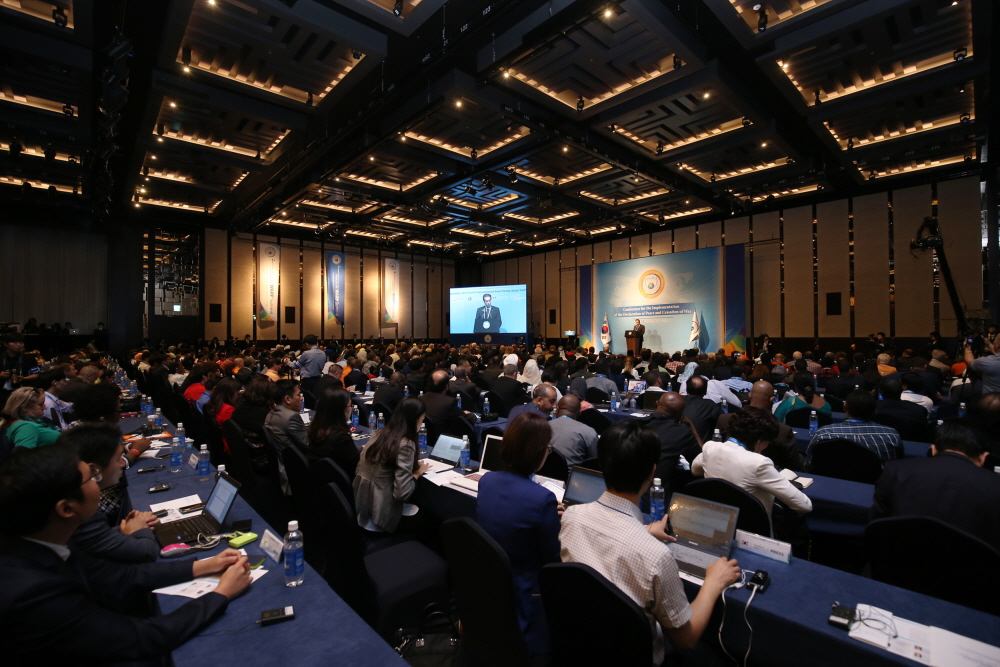
While being attended by nearly 1,000 participants, including heads of state, decision-makers, IGOs, NGOs, and faith-based organizations, the presentation of the precise plan of action for all sectors drew a practical approach to this year’s Summit’s goal: Advocacy of the global legislation of peace inspired by the DPCW.
The tangible results gained from the various sessions held on the 17th were thoroughly discussed and people were reminded of their astonishing experiences of the spirit of peace spread at the Peace Festival at Seoul Stadium the day before.
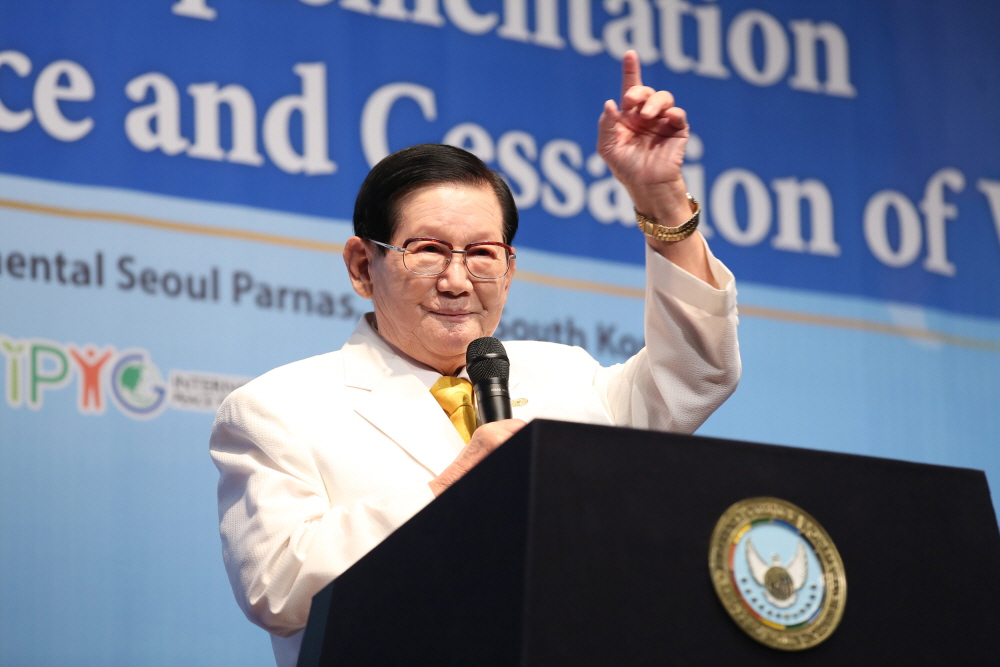
“The Declaration that we drafted is a new legal framework that can bring about the cessation of war and world peace. Prime ministers and chief justices together with the National Assembly of each nation must acknowledge the value and principles of the DPCW and propel and support the development process of the DPCW. All of us who are moving forward to the creation of the new era of peace have to work together to complete our common goal of peace. This will be eternally recorded in history as the work of light to the world.”
“When the public voice in advocacy of the adoption of the international law becomes greater, the power of peace transcending national interest will also be greater. For the adoption of the international law for peace, let us unite our minds and speak out. Your actions today will be an exemplary model of respect for future generations and become the everlasting light recorded in heaven.”
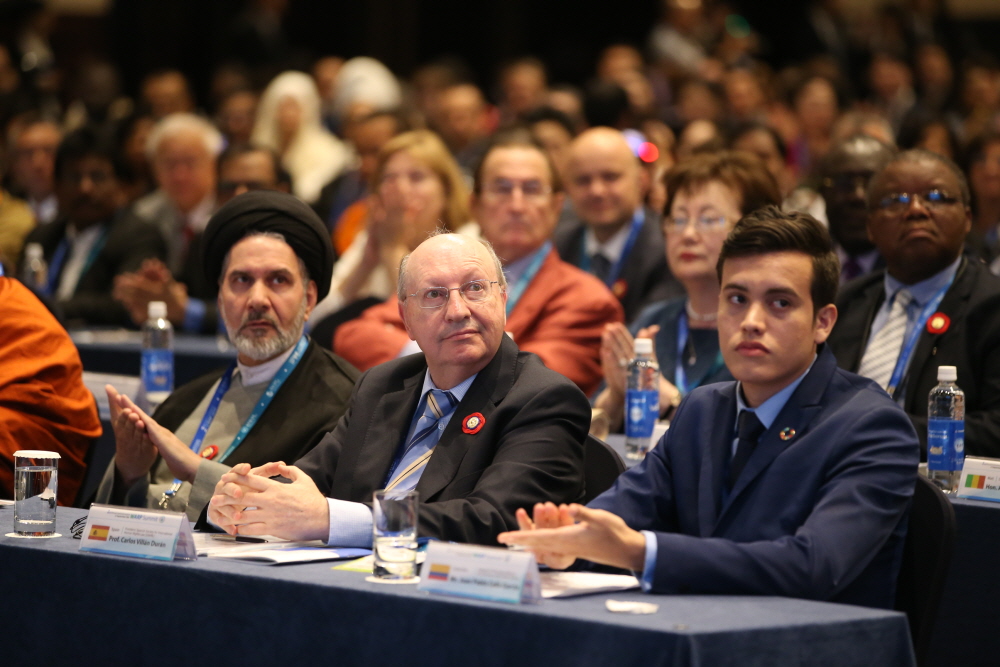
At the Conference, particularly, six main speakers provided their addresses to represent each field of all participants and present how each sector will actively advocate and get involved in the development process of the DPCW in their respective countries and cooperate for its vision accordingly.
Mr. Carlos Villan Duran, President of the Spanish Society for International Human Rights Law (SSIHRL) spoke about the role of civil society on the implementation process of the DPCW.
“Civil society has to participate with governments in the codification and progressive development of international law. Indeed, CSO represent the conscience of Humankind and their voices are essential to ensure progress in the action taken by States within the United Nations.
The DPCW provides positive elements to foster the dialogue and reconciliation among religions. Religious leaders should continue their work against the fundamentalism and the political instrumentalization of some religions. Women, youth and political leaders from around the world, are invited to join their voices to achieve peace and cessation of war as a binding rule of all States.”
In consultation with associated NGOs and public institutions, SSIHRL has tried to translate peace from the universal ethnic value to the legal category of human right since its foundation in 2004. Following the processes and outcomes undertaken by SSIHRL will provide practical legal advice for the DPCW.
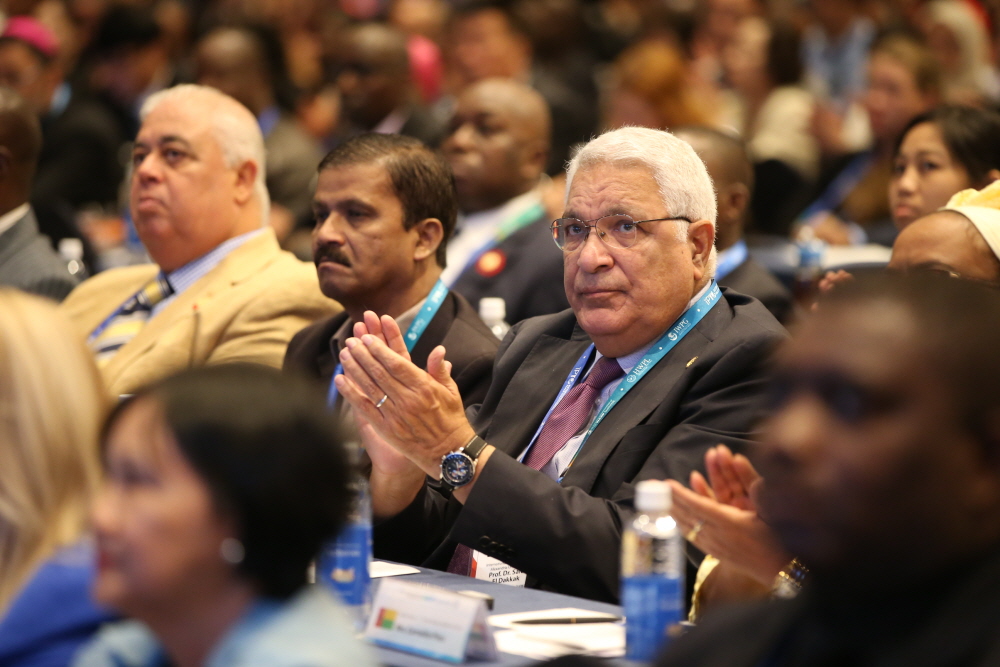
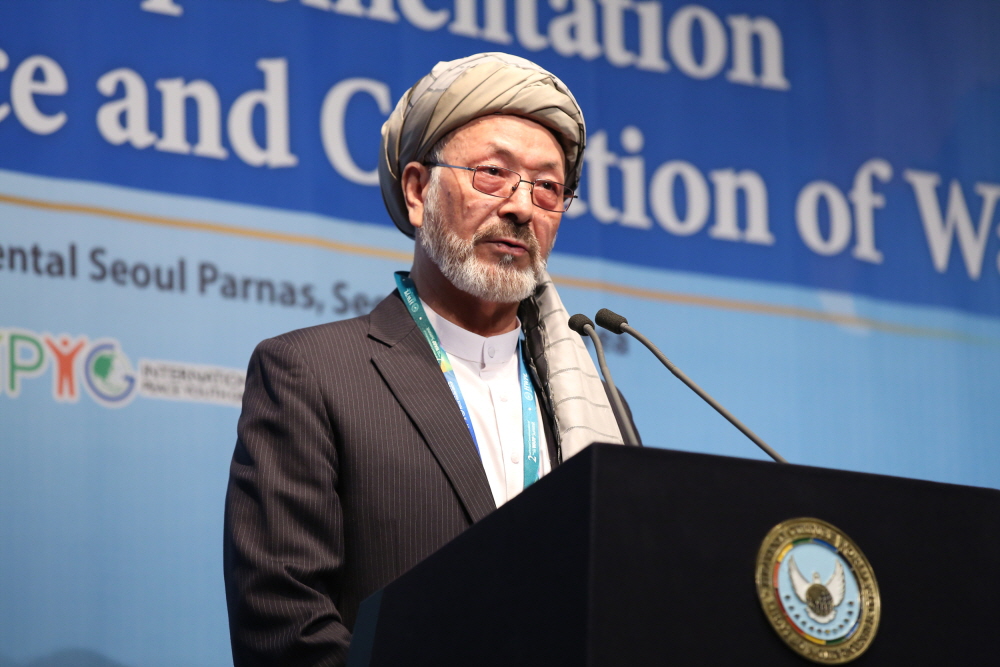
The former Vice President of Afghanistan, Hon. Karim Khalili said,
“The misconceptions and extreme and fanatic presumptions of religion and faith have caused the formation of hostility, hate and terrorism. Therefore, religious leaders as real and honest defenders of religion and scholars, intelligentsia as intellectual supporters of human civilization, are responsible for rescuing the religion and civilization from the hand of reactionary extremists.”
He added, “Taking this opportunity, I announce my and the Afghanistan High Peace Council’s support, and strongly expect leaders and heads of states to extend their strong and comprehensive support to this declaration to be included in the agenda of the United Nations Organization and the contents of this declaration to be considered in the legislation and institution building processes, being reflected in the lives of world people in a practical way.”
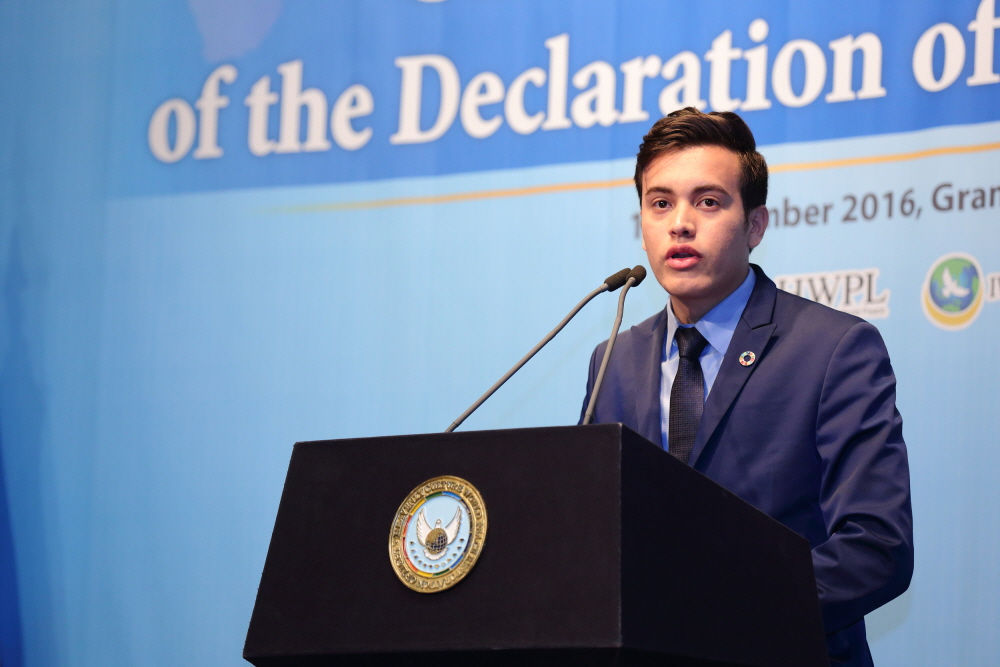
Juan Pablo Celis Garcia, a youth activist from Colombia, said “International, national and local communities must find ways to effectively channel, strengthen, support, and expand young people’s desire to contribute to constructive change and to offer meaningful service to the global society. I encourage you to participate, join the discussion and be part of the decision-making process. Contact your Governments, advocate for peace in your communities, and participate in the work of international organizations.”
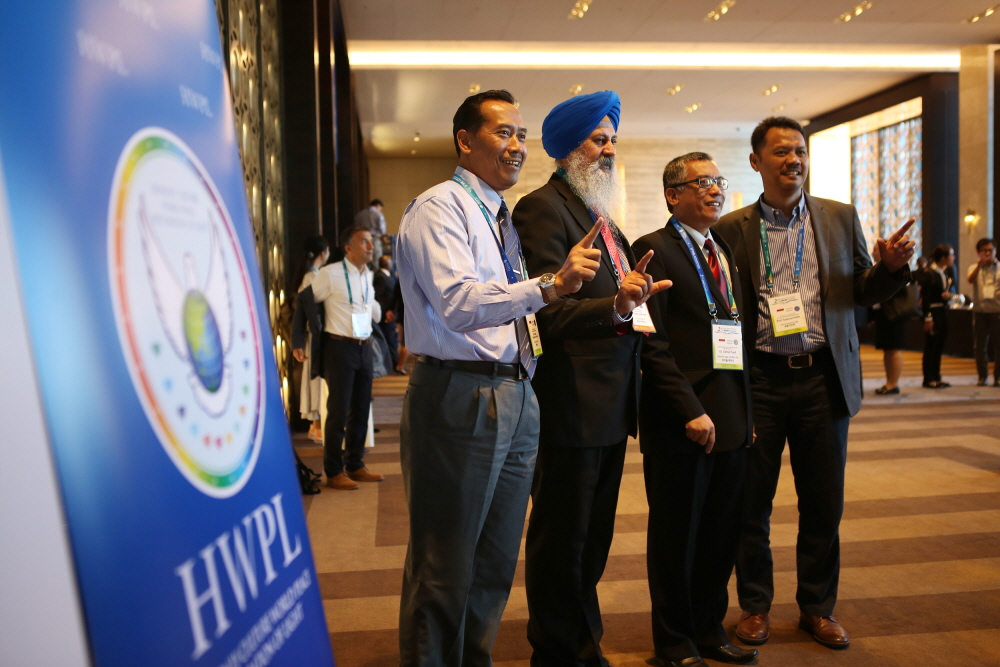
The Conference gave great attention to the messages of the speakers, which called for enhanced cooperation with HWPL in promoting the involvement of all IGOs and NGOs and international communities to establish a legally binding document inspired by the DPCW.
The contribution of these sectors demonstrated that in the near future States will view the methodologies to bring forth democracy, human rights, equality and peace embedded in the Declaration and will make increasing efforts to reflect the contributions and perspectives of all supporting bodies in the actual process of implementation.













